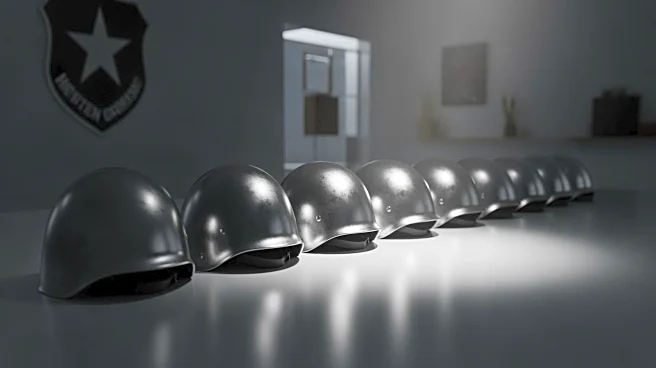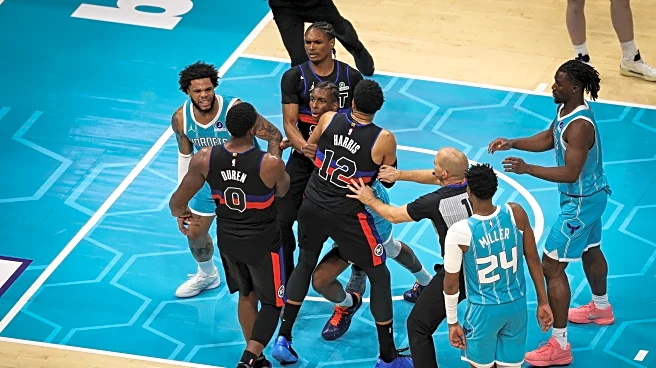What's Happening?
The Pentagon, under the administration of President Trump, has initiated the formation of 'quick reaction forces' across all U.S. states, the District of Columbia, and U.S. territories. These forces, consisting of approximately 500 National Guard members
per state, are being trained in riot control techniques, including the use of batons, body shields, tasers, and pepper spray. The directive, signed by Major General Ronald Burkett, aims to prepare around 23,500 troops for potential deployment in response to civil disturbances. This move follows an executive order issued by President Trump in August, which authorized the use of the National Guard to combat crime in Washington, D.C. The initiative has sparked controversy and legal challenges, as federal forces have been deployed in cities like Los Angeles, Chicago, Memphis, and Portland.
Why It's Important?
The establishment of 'quick reaction forces' by the Pentagon is significant as it represents a federal response to civil unrest, potentially altering the dynamics between state and federal authorities. The deployment of these forces could lead to increased tensions and legal battles, as the use of federal troops in local matters has been a contentious issue. This initiative may impact public policy and civil liberties, as it involves federal intervention in local law enforcement. The decision could also influence political discourse, with lawmakers and civil rights groups likely to scrutinize the legality and necessity of such measures. The broader implications include potential shifts in how civil disturbances are managed in the U.S., affecting societal norms and governance.
What's Next?
The timeline for training and deploying these 'quick reaction forces' remains uncertain, as does the criteria for their activation. The Supreme Court is currently evaluating the legality of deploying federal troops in American cities, which could influence future actions. Political leaders and civil society groups are expected to continue challenging the initiative, potentially leading to further legal proceedings. The Pentagon's directive may prompt discussions on the balance between federal authority and state autonomy, as well as the role of the National Guard in domestic affairs. Stakeholders, including local governments and advocacy groups, will likely monitor developments closely, assessing the impact on public safety and civil rights.
Beyond the Headlines
The creation of 'quick reaction forces' raises ethical and legal questions about the militarization of domestic law enforcement and the potential erosion of civil liberties. The initiative could set a precedent for increased federal involvement in local matters, challenging traditional governance structures. Long-term implications may include shifts in public perception of the National Guard and its role in society, as well as changes in legal frameworks governing federal intervention. The move also highlights cultural tensions surrounding protest management and the balance between security and freedom, potentially influencing future policy decisions.

















